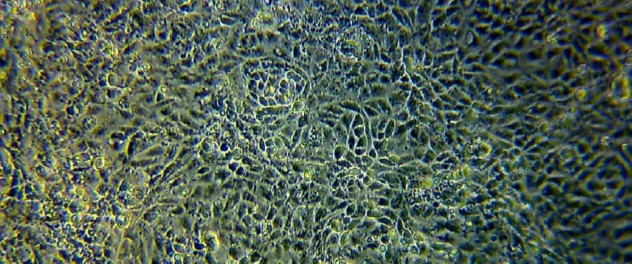 Harnessing the potential of stem cells
Harnessing the potential of stem cells
Cholangiocytes derived from induced pluripotent stem cells offer promising new possibilities for understanding biliary disorders. By creating these patient-specific liver cells, the laboratory can explore the genetic and epigenetic factors underlying biliary cell development and disease. These cells also offer a platform for individualized disease modeling and testing new therapies.
Overview
The Biliary Epigenetics and Regenerative Medicine Laboratory of Robert C. Huebert, M.D., at Mayo Clinic focuses broadly on mechanistic studies in liver disease, with a focus on understanding and treating the cholangiopathies, a diverse group of diseases targeting the biliary tree. The laboratory's research program seeks to understand the molecular mechanisms that drive biliary fibrosis, regeneration and repair, including the signaling pathways and epigenetic events that drive these processes.
Dr. Huebert's laboratory has a National Institutes of Health-funded program dedicated to defining the molecular mechanisms of cholestatic fibrogenesis, with a focus on the epigenetic regulators that drive pathologic gene expression patterns. In addition, the laboratory developed a novel method to derive cholangiocytes, the specialized epithelial cells that line the intrahepatic and extrahepatic bile ducts, from induced pluripotent stem cells (iPSCs). The iPSCs are cells like embryonic stem cells that can be created from skin cells after a simple skin biopsy, reprogrammed to pluripotency, and then differentiated into subject-specific liver cells.
In collaboration with the Mayo Clinic Regenerative Medicine Biotrust and the Center for Cell Signaling in Gastroenterology (C-SIG), Dr. Huebert's program populated a liver biobank, a biorepository of iPSCs from subjects with liver disease. This unique resource allows for individualized disease modeling, pharmacological testing and potentially cell therapy applications for chronic liver disease.